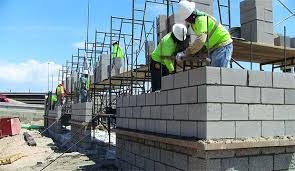Construction has been a cornerstone of human civilization installing brick veneer for millennia, evolving from simple shelters to the sophisticated, towering skyscrapers and sprawling urban landscapes of today. Modern construction techniques have revolutionized the industry, enhancing efficiency, safety, and sustainability. This article delves into the key advancements in construction technology and their profound impact on the industry.
Advancements in Construction Technology
- Prefabrication and Modular Construction
Prefabrication involves assembling components of a structure in a factory setting before transporting them to the construction site for final assembly. This method significantly reduces construction time and waste. Modular construction, a subset of prefabrication, involves building entire sections of a structure off-site, which are then transported and assembled on-site. This technique ensures higher quality control, reduces labor costs, and minimizes environmental impact. - Building Information Modeling (BIM)
BIM is a digital representation of the physical and functional characteristics of a facility. It provides a comprehensive platform for architects, engineers, and construction professionals to collaborate efficiently. BIM enhances project visualization, streamlines communication, and helps in identifying potential issues before construction begins, reducing errors and rework. - Green Building Technologies
Sustainability is a significant focus in modern construction. Green building technologies aim to reduce the environmental footprint of buildings. These technologies include the use of renewable energy sources, energy-efficient HVAC systems, sustainable building materials, and water conservation systems. The integration of these technologies not only promotes environmental responsibility but also reduces operational costs in the long run. - Advanced Materials
The development of new materials has greatly impacted construction. High-performance concrete, self-healing materials, and lightweight composites have enhanced the durability, strength, and efficiency of structures. These materials also contribute to the sustainability of buildings by reducing the need for frequent repairs and replacements. - Construction Robotics and Automation
Automation in construction is transforming the industry by improving precision, safety, and productivity. Robots are now capable of performing tasks such as bricklaying, concrete dispensing, and even demolition. Drones are used for site surveys and inspections, providing real-time data that enhances decision-making processes. Automation reduces human error, minimizes risks, and speeds up project completion times.
Impact on the Construction Industry
The integration of these advanced techniques and technologies has brought about significant changes in the construction industry:
- Enhanced Efficiency: The use of prefabrication, BIM, and automation has streamlined construction processes, reducing project timelines and costs. This efficiency allows for faster completion of projects without compromising quality.
- Improved Safety: Automation and robotics have reduced the need for human workers to perform dangerous tasks, significantly lowering the risk of accidents on construction sites. Enhanced safety protocols and technologies also contribute to a safer working environment.
- Sustainability: Green building technologies and advanced materials have made it possible to construct environmentally friendly buildings. These sustainable practices reduce energy consumption, lower carbon footprints, and promote the use of renewable resources.
- Quality Control: BIM and prefabrication ensure higher precision and quality in construction projects. These technologies allow for better planning, coordination, and execution, resulting in structures that meet stringent quality standards.
Future Trends in Construction
Looking ahead, the construction industry is poised for further transformation. The continued development of smart building technologies, 3D printing, and artificial intelligence will drive innovation. Smart buildings, equipped with IoT devices, will optimize energy use, enhance security, and improve occupant comfort. 3D printing will enable the creation of complex structures with unprecedented speed and efficiency. AI will provide predictive analytics, improving project management and decision-making.
Conclusion
Modern construction techniques have revolutionized the industry, offering numerous benefits in terms of efficiency, safety, sustainability, and quality. As technology continues to advance, the construction industry will undoubtedly witness even more groundbreaking changes, paving the way for smarter, more resilient, and environmentally friendly structures. Embracing these innovations is essential for addressing the growing demands of urbanization and ensuring a sustainable future for the built environment.





